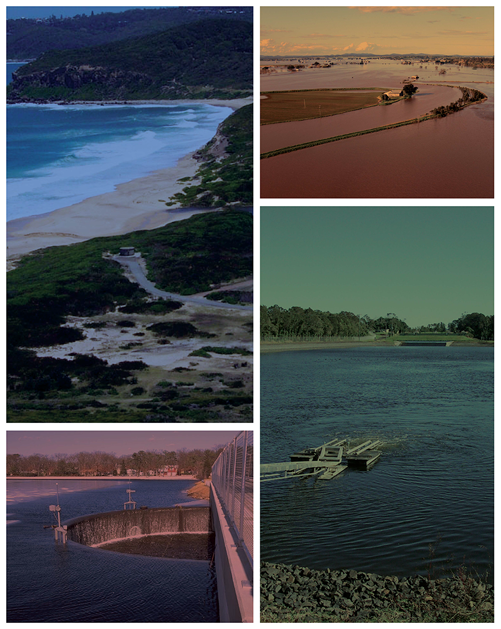A 2-day Workshop entitled “Stormwater Management (source control)” has been organised by EEA (Engineering Education, Australia) for Thursday/Friday 18/19 March, 2010 in Sydney. The Notes provided in the course are based on the content of the award-winning manual “WSUD: basic procedures for ‘source control’ of stormwater – a Handbook for Australian practice” edited by Professor John Argue (University of South Australia). This document is endorsed by Stormwater Industry Association (SIA), Australian Water Association (AWA) and, recently, by Dept of Water, Western Australia. The Notes were updated in February, 2009.
The content features a balance between the three domains of WSUD (stormwater) practice – quantity control, pollution control and stormwater harvesting. Serious issues of stormwater management in Australia are posed by the Federal Government’s goal of 35 million population by 2050. How will Sydney’s existing stormwater infrastructure cope with change to selected regions under the ‘high rise’ option being proposed as the likely re-development scenario? What strategies can be adopted to enable existing (competently-performing) infrastructure to cope with this scenario without expensive upgrade? How can re-development in catchments with existing under-performing stormwater infrastructure be managed to enable the in-ground works to progressively meet the government’s goals without expensive upgrade? Must the creeks and natural waterways on Sydney’s northern, western and southern perimeters be sacrificed to hard-lining in the wake of the proposed expansion? Positive answers to these and many other questions based on WSUD ‘source control’ practices will be provided in the Workshop.
The Workshop will also include results of hydrological modelling of high-performing filter-bioretention systems enhanced by treatment taking place in parent soil masses; the fate of dissolved pollutants is singled out for particular attention.
The short course includes: design procedures based on state-of-the-art analyses and best overseas practices adapted to Australia-wide conditions; case study illustrations drawn from field installations with between ten and 18 years of Australian operational history; design ‘worked examples’; introduction and access to rainwater tank sizing software applicable across Australia. The Workshop will be led by Professor John Argue.
Attendance at the Workshop earns 32 hours credit for continuing professional development purposes with Engineers Australia. More information about the workshop including course content, cost and Registration Forms may be obtained from Ms Ann Ellis on (03) 9326 9777 or [email protected]



Leave a Reply